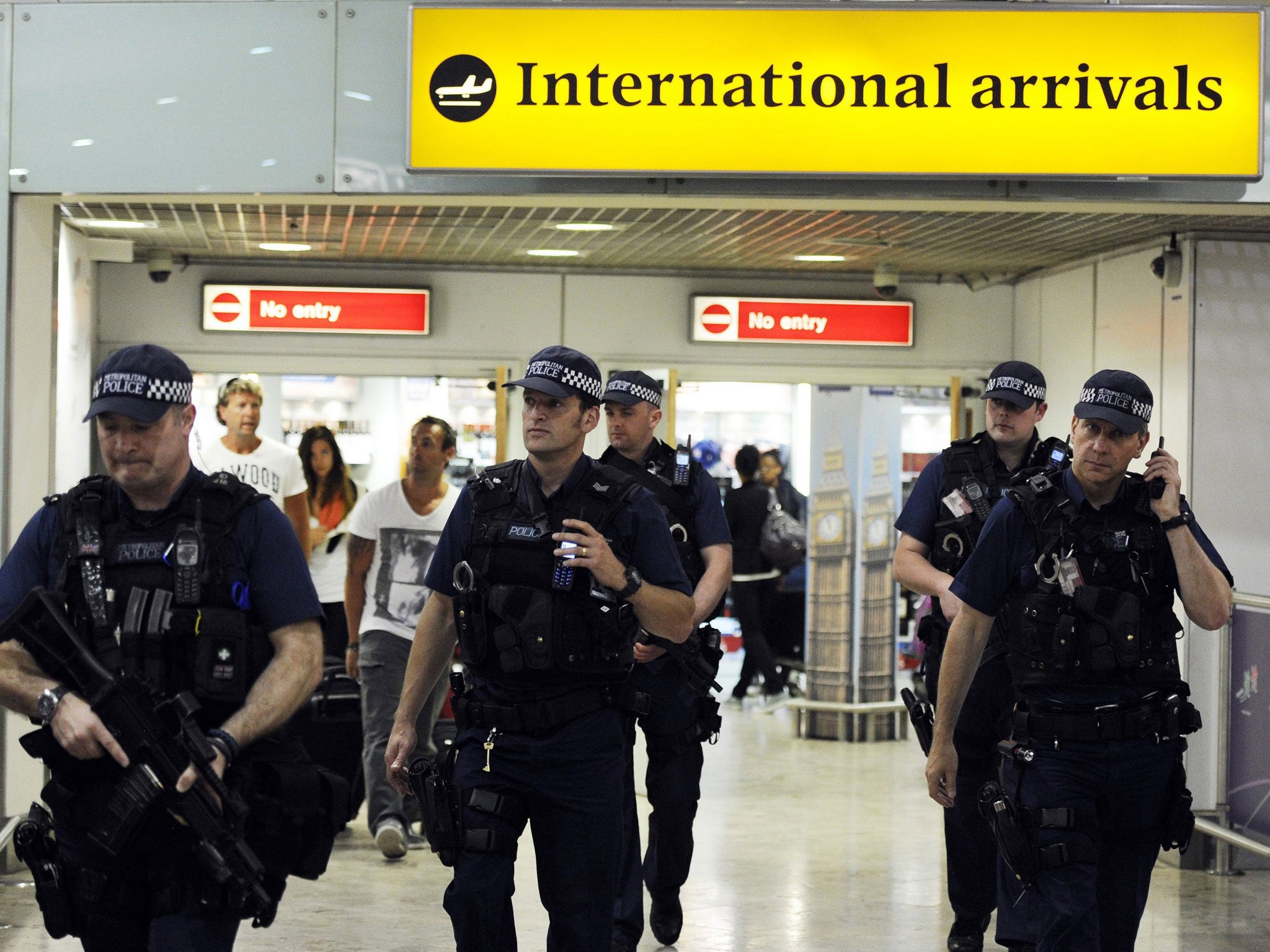UK terrorism laws so broad it has begun to 'catch those it never intended to'
Political journalists and bloggers should not be convicted under terror laws says watchdog

UK anti-terrorism laws are so broadly drawn they are in danger of catching journalists, bloggers, and those it was "never intended to cover" the counter-terrorism watchdog has said.
David Anderson QC has called on the Government to revisit its definition of terrorism in his annual report published today as the UK’s independent reviewer of terrorism legislation.
The UK has some of the most extensive anti-terrorism laws in the western world, Mr Anderson said, giving ministers the powers they need to combat violence perpetrated by al-Qa’ida inspired terrorists, right-wing extremists and dissident groups in Northern Ireland. They also enable prosecutions to be brought for activities in other countries including Syria and Iraq.
But if these exceptional powers are to command public consent, it is important they should be confined to their proper purpose, he said.
"The problem is that our definition has begun to catch people that it was never really intended to catch," Mr Anderson told BBC Radio 4’s Today programme.
While giving credit to the prosecuting authorities, the police, and ministers, who he believes do not "very often abuse or stretch the very wide discretions they are given under the Act," Mr Anderson said that people "who should never get caught by these laws" are worried that they might be arrested, which could restrict the way they conduct their business.
"Look at the example of journalists and bloggers, who can be considered terrorists if they are seeking to influence the Government and if their words endanger life or create a serious risk to public health or safety," he told the programme.
"Foolish or dangerous journalism is one thing, terrorism is another," he said.
Mr Anderson references the case of David Miranda in his report, in which the Brazilian partner of Guardian journalist Glenn Greenwald was detained and questioned for nine hours under terrorism laws because he was believed to be carrying stolen secrets linked to Mr Greenwald’s articles uncovering NSA surveillance activity.
Mr Miranda’s detention was later deemed lawful by the High Court, but Mr Anderson said the case of this detention, in which Mr Miranda was believed to be carrying a large number of stolen secret documents, was "more difficult to defend" the use of anti-terrorism laws for the purpose of stopping someone, detaining them and seeing "what’s going on".
"One might be thinking of official secrets, of espionage, of theft, but it’s a bit of a stretch to see somebody like that as a potential terrorist," he said.
Mr Anderson warned the public would only continue to accept the legislation if they were sure it was genuinely needed. He has called on Parliament to revisit its definition and the use of the word "influence" in its laws, as currently the definition is so broad it could catch a campaigner who voices a religious objection to vaccination on the grounds of it being a serious risk to public health.
"I think the problem there is the way the bar is set. It is enough that you are trying to influence the Government for political reasons. In most other countries you need to have to intimidate the government or coerce the government before you can be a terrorist," he said.
He added: "Another problem with the law is that it fails to distinguish, in all respects, between hate crime and terrorism.
"So you could take someone who is no harm to anyone other than his immediate victim - a man who pipe bombs his neighbour's wall, or a student who threatens a teacher on a fascist website," he said.
Bookmark popover
Removed from bookmarks